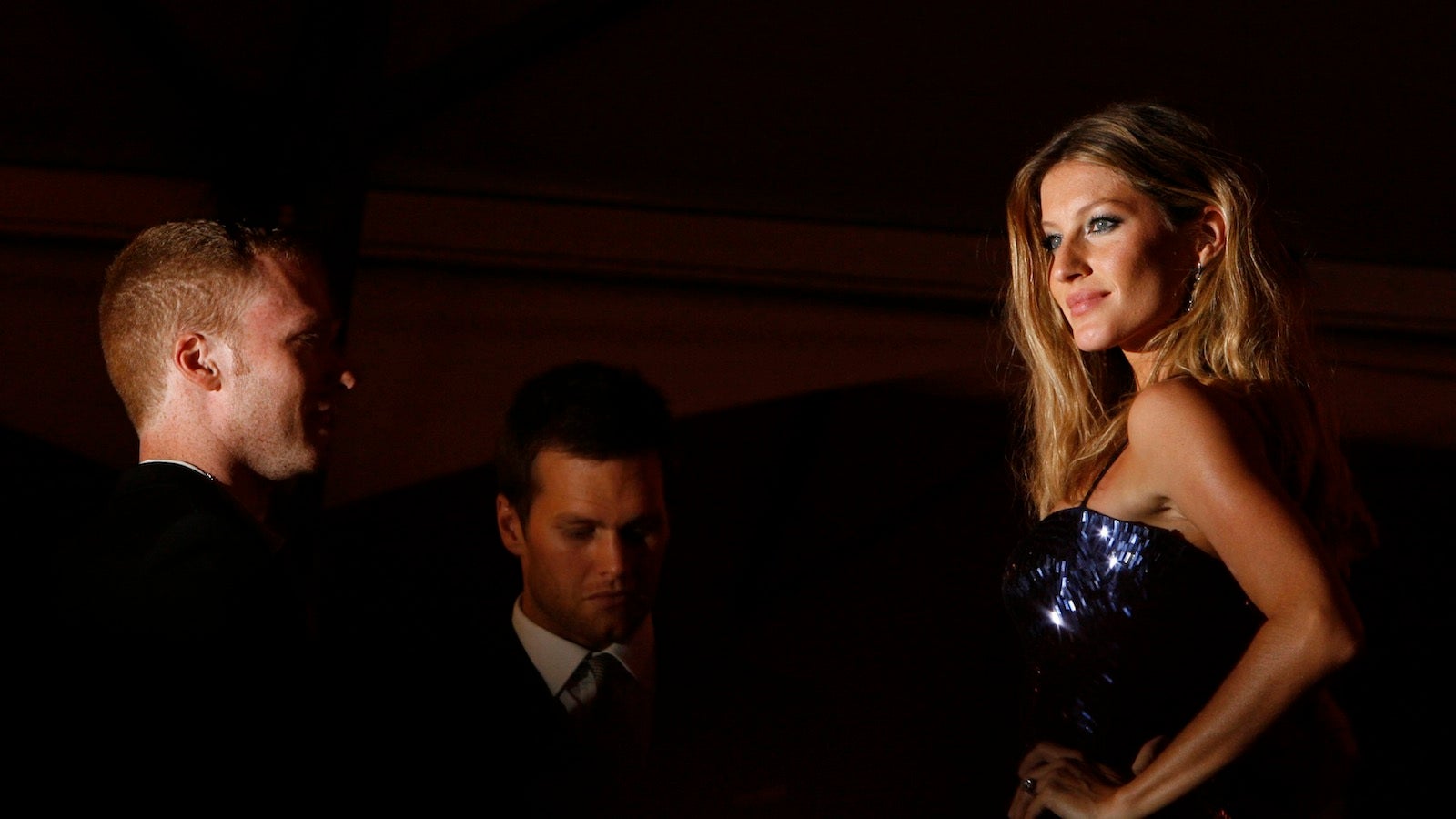Who cares if supermodel Gisele wears a burqa?
Last week, recently-retired supermodel Gisele Bündchen was in Paris, allegedly for some plastic surgery. Trying to avoid paparazzi attention, she seems to have donned a burqa—illegal in France—but her ploy for anonymity backfired spectacularly.


Last week, recently-retired supermodel Gisele Bündchen was in Paris, allegedly for some plastic surgery. Trying to avoid paparazzi attention, she seems to have donned a burqa—illegal in France—but her ploy for anonymity backfired spectacularly.
The specter of Tom Brady’s celebrity wife so garbed even made the cover of New York Post. But this wasn’t a story because it was Gisele Bündchen. And it wasn’t a story because of burqas, either. It was because it was Bündchen in a burqa. These two heavenly objects (Islam, Gisele) are presumed affixed to separate celestial spheres, never meant to cross paths. But they did.
Reporting breathlessly on the Gisele sighting, E! Online‘s Lily Harrison claimed the supermodel could be identified by her “gold sandals,” peeking out from under her burqa, the sight of “which,” Harrison insisted, “would contradict certain religious rules against exposed feet.”
Excerpt there are, in fact, no such rules.
The burqa, Harrison also wrote, is a “garment traditionally worn by Muslim women.”
Except the burqa isn’t traditionally worn by Muslim women, because Muslim women have all sorts of traditions, depending on where they are from, not just because of their faith.
It is often the case that people writing about what Muslims do or don’t do (or in this case, about what constitutes a non-Muslim acting like a Muslim), have not actually spoken to a Muslim person about the matter.
Properly, we could say some Muslim women, in some cultures, wear burqas because it’s their pre-Western dress (tradition!). But many more wear the burqa because it’s imposed on them as a response to modernity, or adopted by them, also in response to modernity.
In a parallel example, the fact that there are lingerie sales in conservative Saudi Arabia, for example, strikes many in the West as apparently too paradoxical not to be commented on. But it’s not much of a paradox: Many Muslims simply believe public modesty and private sexuality are mutually reinforcing, and that a culture that is too openly sexual damages intimacy where it is most needed and best expressed: In homes, between spouses.
To keep a marriage flourishing, goes the thinking, free spouses from impossible and unfair expectations. A wife should not have to wonder how she compares, in her husband’s eyes, to Victoria’s Secret models; a husband should not have to compare himself to Magic Mike when he takes off his shirt.
Sartorial modesty was originally meant to travel in both directions. Indigenous forms of dress in Muslim-majority societies usually see men covering as much as Muslim women; in the Pakistan of my family’s origin, for example, men’s and women’s shalwar qamis covers nearly all the body, irrespective of gender, cut in remarkably similar ways; men even cover their hair with some form of headgear.
Of course, in places where religious morality is legislated politically, men are often offered the most lenient interpretation of modesty, and women suffer the most stringent. In some Muslim countries, what women wear has been imposed upon them. But this is also true of Western societies: women’s bodies serve as a screen onto which we project our fears and desires.
Case in point: Wearing a burqa is illegal in France.
Our clothes have come to stand for our values. The more of our bodies we show, I’m sure many of us presume, the more open and tolerant we are. Because many Muslims wear many more clothes, the logic goes, they must allegedly prefer authoritarianism. Democracy and the veil, by this way of thinking, cannot coexist.
So if this was indeed Gisele out with her sister, Rafaela, on a fine Paris day, I’d expect the French government to pursue the investigation with all the fury of a deflated Colts fan, if necessary issuing the supermodel with a heavy fine, reflective of her income, fame and potentially outsize influence on impressionable Muslim women. Unless, that is, as many have suspected, the ban on burqas only applies to Muslim women.
Gisele is one of us Westerns—she’s thought modern—because she shows us her body. Publications like E! have come to believe that they have a right to see Gisele, not to mention her public appearances, activities and routines. And that’s why her apparent choice to wear a burqa attracted so much incredulous attention. She’s saying something very unusual for a Western woman in the public eye: “You do not have the right to look at me whenever you want.”